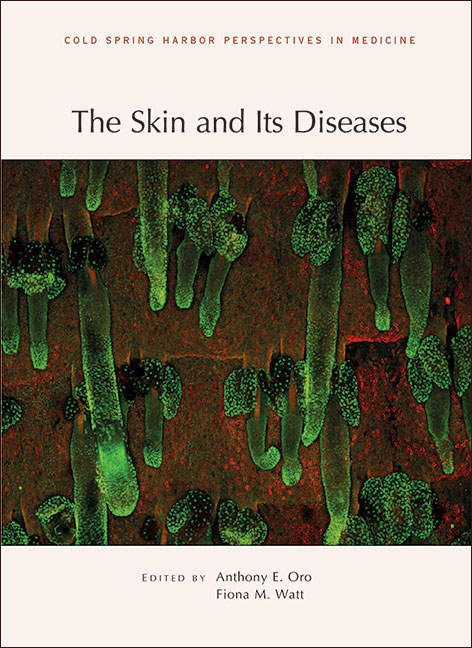07 2014
Cold Spring Harbor Perspectives in Medicine published our review on advanced treatments for basal cell carcinoma
 Basal cell carcinomas (BCCs) are locally invasive epithelial tumors that arise from activating mutations in the Hedgehog (HH) signaling
pathway. HH-dependent cancers emanate from many organs such as brain, pancreas, prostate, bladder, and lung, accounting for up to 25% of all human cancer deaths. As BCCs are readily visible and rarely metastasize, surgical
excision is the most common therapy. However, surgery is less effective in patients with multiple tumors, tumors in cosmetically sensitive areas, and late-stage or metastatic cancer, indicating a need for additional alternative
therapies. After 20 years of research into the identity and functional roles of HH pathway components, the FDA recently approved vismodegib (Erivedge; Genentech/Roche) as a first-generation HH
pathway antagonist for the treatment of late-advanced or metastatic BCC. Vismodegib is an effective therapy that shrinks tumors to a manageable size; however, as with most cancer drugs, some tumors evolve and acquire resistance
over time. How these tumor cell populations adapt to circumvent HH pathway blockade is an active area of investigation that is leading to the discovery of next-generation therapeutic targets for treating HH-dependent cancers.
In this review, we will discuss the traditional therapies to treat BCCs, first generation of HH pathway antagonists, and how research into drug-resistant mechanisms are leading to the development of the next generation of
therapeutics for HH-dependent cancers.
Basal cell carcinomas (BCCs) are locally invasive epithelial tumors that arise from activating mutations in the Hedgehog (HH) signaling
pathway. HH-dependent cancers emanate from many organs such as brain, pancreas, prostate, bladder, and lung, accounting for up to 25% of all human cancer deaths. As BCCs are readily visible and rarely metastasize, surgical
excision is the most common therapy. However, surgery is less effective in patients with multiple tumors, tumors in cosmetically sensitive areas, and late-stage or metastatic cancer, indicating a need for additional alternative
therapies. After 20 years of research into the identity and functional roles of HH pathway components, the FDA recently approved vismodegib (Erivedge; Genentech/Roche) as a first-generation HH
pathway antagonist for the treatment of late-advanced or metastatic BCC. Vismodegib is an effective therapy that shrinks tumors to a manageable size; however, as with most cancer drugs, some tumors evolve and acquire resistance
over time. How these tumor cell populations adapt to circumvent HH pathway blockade is an active area of investigation that is leading to the discovery of next-generation therapeutic targets for treating HH-dependent cancers.
In this review, we will discuss the traditional therapies to treat BCCs, first generation of HH pathway antagonists, and how research into drug-resistant mechanisms are leading to the development of the next generation of
therapeutics for HH-dependent cancers.